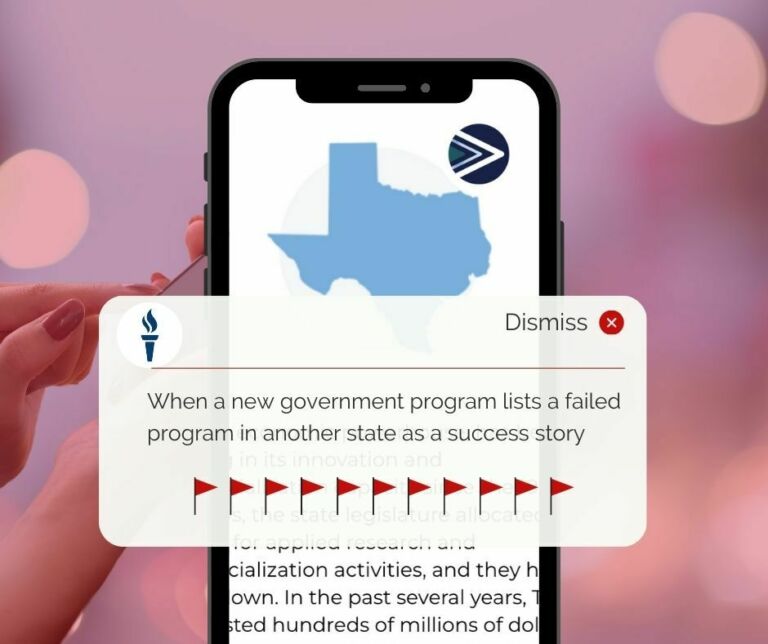Senate Bill 820, which skyrockets tax incentives for “big boys with deep pockets,” rampaged through the North Carolina General Assembly last week like a General Patton simile. It’s already law.
Gov. Roy Cooper, who told the entire state that in his view “we cannot sacrifice education at the altar of even more corporate tax cuts or giveaways that are mostly for the wealthiest,” completed that ritual by signing it into law Dec. 3.
Nevertheless, economic research continues to cast doubt on the idea that targeted “corporate tax cuts or giveaways” for economic development actually work. They’re wealth transfer programs, and since the beneficiaries are the wealthiest, take a guess on where that wealth is coming from.
The cronyism’s in the details
Here are excerpts from the fiscal note on the bill’s huge expansion of the Jobs Development Investment Grant (JDIG) program’s cap:
A JDIG agreement may be up to 12 years and is a binding obligation of the State …. G.S. 143B-437.56(f) requires that each employee’s withholdings used to calculate a total JDIG award be capped at $6,500. This requirement affects companies with employees earning more than $175,000 per year ($160,000 for projects in Tier 1 counties). For example, a company with an employee earning $200,000 per year could expect to report income tax withholdings of $10,165. Though 75% of $10,165 is $7,623, under current law, only $6,500 could be used to add to the company’s award. Under the proposed bill, the withholdings cap would increase to $16,000 per employee. The Department of Commerce could then use withholdings of employees earning up to approximately $410,000 per year to calculate companies’ JDIG awards.
To recap, then:
We are supposed to believe that a corporation that would otherwise think it makes business sense to relocate or expand in North Carolina simply can’t if it “only” gets grants reimbursing it for its income-tax withholding for executive salaries up to $175,000.
If it’s such a “big boy” where the salaries are higher, the difference between the actual salaries and $175,000 wouldn’t be reimbursed. So we’re supposed to believe that gap means “no sale” on the corporation coming here — and therefore disastrous to the state’s economy.
We’re also supposed to believe that the few companies that this would actually affect are critical to the state’s economic growth, as opposed to further enhancing the state’s business climate by keeping regulatory and corporate tax burdens light for all employers.
There’s little to no reason to believe such things.
Research published in 2015 in Economic Development Quarterly cast significant doubt on tax incentives as a way to enhance job creation and the state’s overall business climate, even if you ask executives at the companies getting the incentives.
The research, by G. Jason Jolley, Mandee Foushee Lancaster, and Jiang Gao, surveyed executives from 150 companies that received economic development incentives from North Carolina and 465 companies that did not. These were incentives under the now-ended William S. Lee Act, the state’s first foray into state tax incentives for economic development.
Their findings included:
Most don’t even know their companies are getting incentives
Seven out of 10 executives from incentivized companies didn’t even know their companies were getting an incentive from North Carolina: “29.3 percent were aware the company had received an incentive, 61.8 percent did not believe the company had received an incentive, and 8.9 percent were unsure.” If that’s “economic impact,” so’s losing a check in a desk drawer.
Corporate executives want skilled labor, low regulations, low taxes, low costs of living, and good transportation infrastructure more than incentives
Out of a list of 19 important factors for North Carolina’s business climate, executives ranked state and local economic development tax incentives 15th and 16th. The only things they found less important than tax incentives were being able to access low-cost labor, mass transit infrastructure, and availability of unskilled labor.
Put another way, asked how important tax incentives were, business executives said they could name 14 things more important to the state’s business climate:
- skilled labor
- the state regulatory burden
- state corporate tax rate
- local property tax rates
- community colleges
- state personal income tax rate
- highways
- information technology infrastructure
- four-year colleges and universities
- housing costs
- environmental regulations
- land prices
- workforce training programs
- major airport
Even incentives recipients think lower tax rates across the board would be better
As if to drive home the point, executives of incentivized companies were asked which was better, to have”select incentives to certain businesses” or “reduce taxes affecting business taxpayers and their owners.” Only one out of five (21.7 percent) said select incentives were better. (Just 14.7 percent of executives at companies not receiving incentives said incentives were better.)
A “more sensible view of the role of government”
In their scholarly article on “The Failure of Economic Development Incentives,” published in the Journal of the American Planning Association in 2004, researchers Alan Peters and Peter Fisher described what they called the “most fundamental problem” with the incentives. It is that “many public officials appear to believe that they can influence the course of their state or local economies through incentives and subsidies to a degree far beyond anything supported by even the most optimistic evidence.”
Their solution sounds like the executives’ list of 14 things more important to have than incentives, including skilled labor, low regulations, low taxes, low costs of living, and good transportation infrastructure:
We need to begin by lowering their expectations about their ability to micromanage economic growth and making the case for a more sensible view of the role of government — providing the foundations for growth through sound fiscal practices, quality public infrastructure, and good education systems — and then letting the economy take care of itself.
Yes, we really do.


